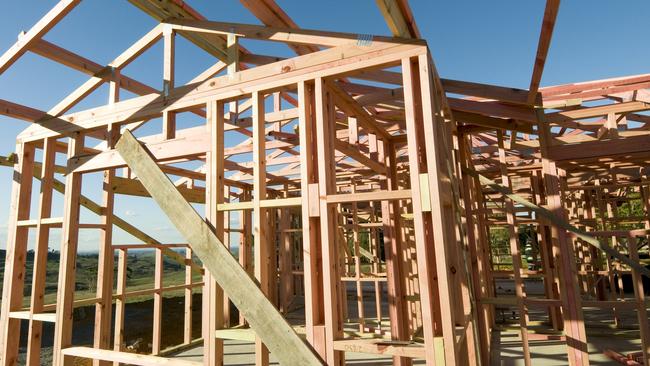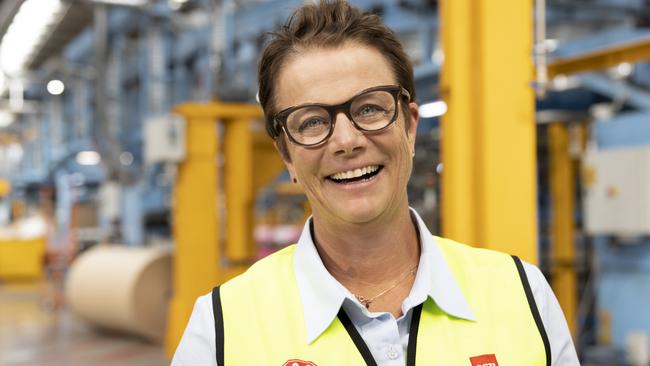CSR boosts manufacturing to meet demand for new homes
Building products giant CSR is investing in factory upgrades and more trucks to meet surging demand for the materials to complete 110,000 homes under constructions around the country.

Building products giant CSR is investing in factory upgrades and more trucks as it attempts to meet surging demand for the additional bricks and plasterboard needed to finish a construction pipeline of 110,000 homes around the country.
CSR chief executive Julie Coates said housing demand remained strong thanks to immigration, low unemployment and government stimulus with a building backlog set to persist next year.
CSR, which owns the Gyprock, Monier Roofing and PGH Bricks and Pavers, will pay a lower interim dividend after first-half profit to the end of September 30 fell 12 per cent to $91.5m. While CSR’s building products business posted record earnings, its property and aluminium operations booked heavy losses due to ongoing volatile market conditions.
Ms Coates said some builders were still struggling to complete projects due to labour and material shortages, with the average time needed to complete a house blowing out from an average of 10 months to a year.
“The biggest challenges for builders is access to labour and getting building products on time,” said Ms Coates. “The builders that have managed the last couple of years well are now in the position to maximise the opportunity as they move forward to complete. Some of them are actually quite buoyant about the coming years.
She said the backlog pipeline of project would improve as supply chain and labour shortages start to ease but the issue would persist into next year.

Population growth from net overseas migration would generate more housing demand but significant federal and state government housing programs should bolster supply.
Ms Coates said the pipeline of detached houses under construction was 50 per cent more than normal while the multi-residential pipeline represented two to three years of work.
“Market conditions are good and CSR is closely monitoring the factors influencing market dynamics and will manage the business accordingly,” Ms Coates said
Investments in new manufacturing equipment, plant consolidation and supply chain had improved manufacturing productivity. “We had high volume going through the factory floor and that will continue in the second half,” she said. “We are also getting the benefits of some of the investments that we have made from a productivity point of view.
“For example, in our Gyprock business we have been able to nationally find capacity for another 1 ½ per cent of plasterboard to go through all our of factories as a result of making recipe and process changes.” CSR also planned to upgrade its Bradford insulation factory at Brendale in Queensland and expand the Bradford Ingleburn furnace in NSW.
UBS analyst Lee Power said this result as a positive with margins from CSR’s building products margins well above expectations and the pipeline of work persisting.
CSR will pay a 15c per share dividend on December 7, compares to an interim payout of 16.5c in the prior corresponding period.
Earnings per share fell to 19.7c from 22.8c dragged down by higher energy costs for its aluminium business, which includes a stake in the Tomago aluminium smelter near Newcastle. “Energy and raw materials cost volatility has necessitated a revision to our forecasts,” said Ms Coates. While this volatility continues to make forecasting challenging, the aluminium was still expected to return to profit in 2025, she said.
While the CSR building products division posted record earnings of $164.7m, up 18 per cent, reflecting price discipline as well as volume growth, the property and aluminium segments booked losses of $1.5m and $24.3m respectively, due to volatile market conditions.




To join the conversation, please log in. Don't have an account? Register
Join the conversation, you are commenting as Logout